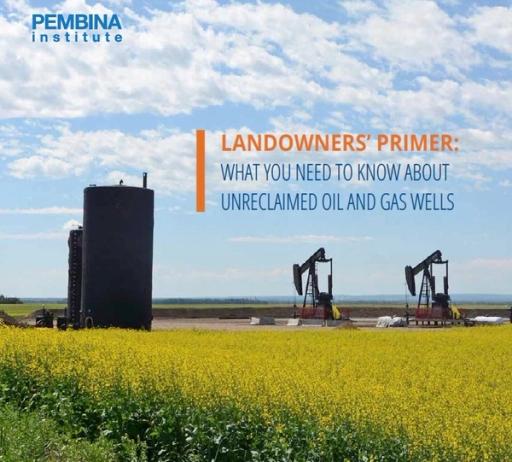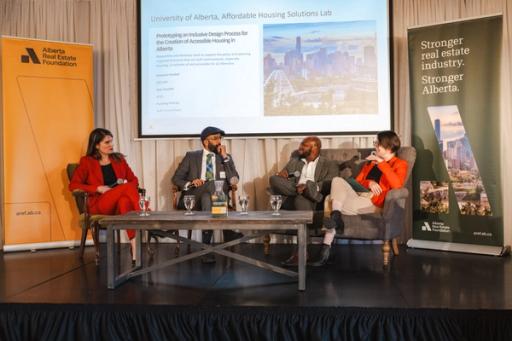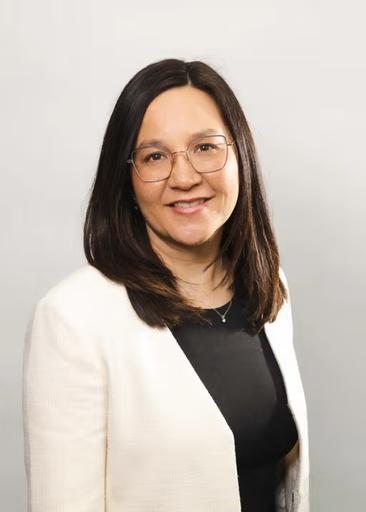November 21, 2019
What do rural landowners need to know about inactive and orphaned wells?

Pembina Institute’s latest primer on oil and gas liabilities in Alberta
By Nikki Way and Morrigan Simpson-Marran
Increasingly, Albertans have heard about the number of oil and gas wells that sit inactive, neglected, or potentially orphaned in this province. Inactive and orphaned well numbers are growing in parallel with a prolonged energy recession in Alberta since 2014. Often this issue is discussed in an abstract way, mainly focusing on the financial implications for the province or referencing liabilities that companies do not have the funds to properly care for, which raises questions about whether some of these wells will be cleaned up at all.
At the end of the day, rural landowners are the ones who have this infrastructure on their land and have to live with these uncertainties. With support from the Alberta Real Estate Foundation, the Pembina Institute has published the Landowner’s primer: what you need to know about unreclaimed oil and gas wells to help those who are most impacted. Designed as a complementary follow up to our 2016 publication, the Landowners’ Guide to Oil and Gas Development , this primer addresses questions and examines problems landowners face when dealing with operators who are under financial strain and still have unreclaimed oil and gas infrastructure on landowners’ property.
Since the price downturn of 2014, multitudes of oil and gas companies that had accrued significant clean-up costs in Alberta have declared bankruptcy, in some cases leaving their infrastructure under the care of the Orphan Well Association. Many of the names of bankrupt operators have been in the news recently, such as Sequoia Resources, Lexin Resources, Trident Exploration, and Redwater Energy.
Although these are some of the high profile examples of operators who reneged on their responsibility to clean up hundreds – and in some cases, thousands – of wells, there are many other lesser known instances in which landowners are left with few answers for what might happen, or even who they could seek out to get questions answered. Currently in Alberta there are 90,000 inactive wells and 3,406 orphan wells that are up for abandonment (also known as decommissioning), while another 2,772 orphan sites need to be reclaimed.
Frequently, when wells are orphaned, sold off in bankruptcy, or even neglected and left inactive by companies that are financially struggling, landowners are left without an explanation of how to proceed and what their rights are. They may struggle to navigate the process of insolvency, or to understand the role of the operator or the regulator through this process.
The Pembina Institute’s Landowner’s primer outlines what a typical reclamation process should look like, and what issues may arise if the reclamation process does not go as planned. It explains what may happen if the operator on your land declares bankruptcy, and who might take over the responsibility of the well next. It offers guidance on issues such as missed lease payments and who to contact in case of a leak from the well. It also offers advice on how to navigate an untended well site. Should more questions remain, the guide has a list of contacts for landowners in order to get the help they need.
Without legislative changes that can ensure the timely reclamation of oil and gas infrastructure before companies reach their financial limits, many landowners will continue to experience this problem. It is important that as many landowners as possible have resources to navigate this situation.
Whether you are a real estate professional, an organization that works with landowners, or if you have an oil or gas well on your property, this primer is for you. You can download a copy of the Landowner’s primer: what you need to know about unreclaimed oil and gas wells. In addition, you can order a printed copy of the Landowners’ Guide to Oil and Gas Development for the cost of shipping.
Download your copy of the Landowner’s primer.
About the Pembina Institute
The Pembina Institute is a non-profit think-tank that advocates for strong, effective policies to support Canada’s clean energy transition. We have offices in Vancouver, Calgary, Edmonton, Ottawa and Toronto. Learn more: www.pembina.org
Similar News


